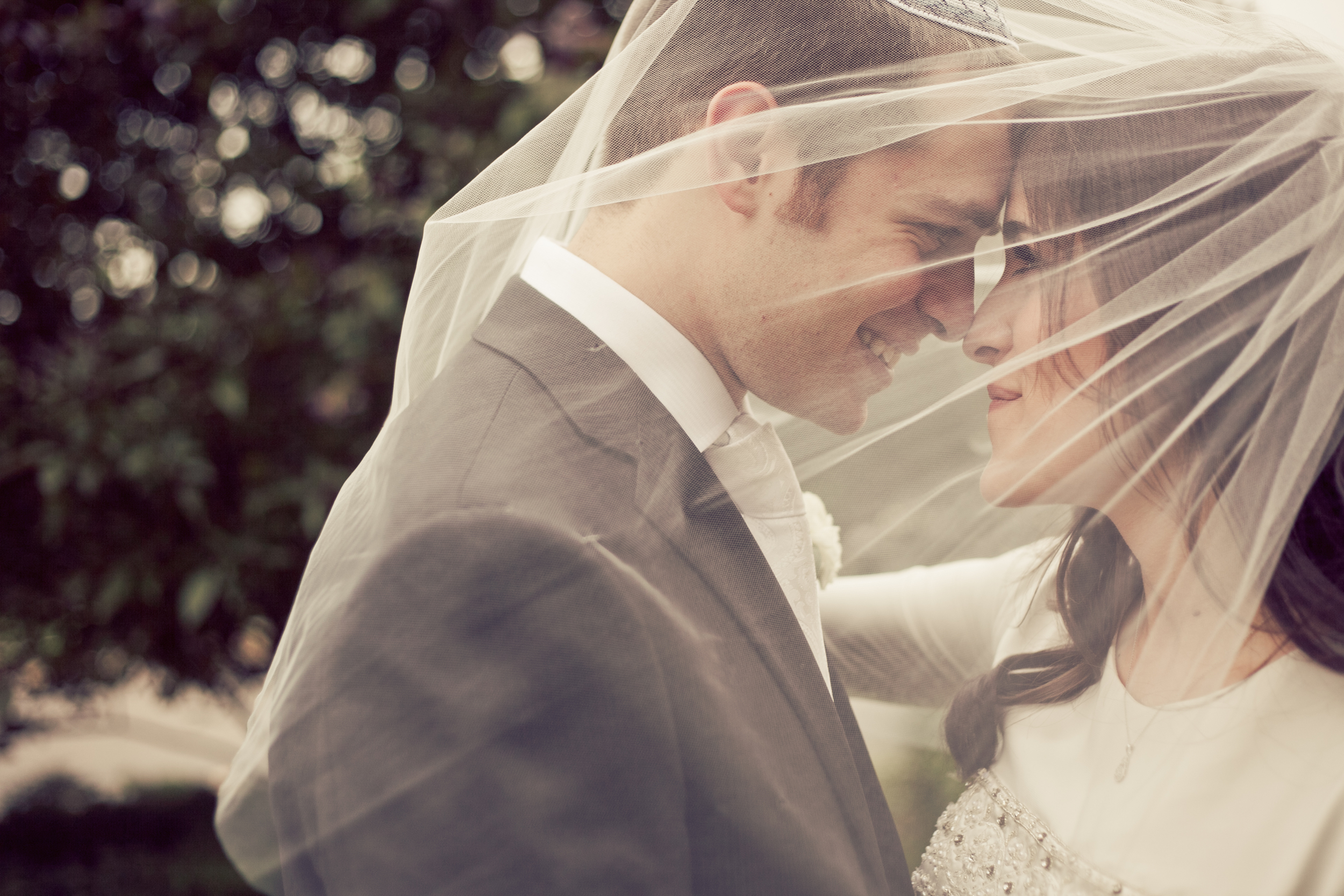LET THE QUESTIONS AND ANSWERS BEGIN!
1. WHAT SHOULD I WEAR?
If you are female, this is your first question. Well, it's probably your first question about everything, but especially here. But even if you are male, you might wonder.
Women: "Is it inappropriate to wear black?" Um, no. In some circles you might even wonder if it's mandatory. Although color is most definitely making a comeback, you can't go wrong with basic black.
Not OK is sleeveless clothing, short clothes (you will see most guests covering the knee), and low cut tops (most guests will have collarbones covered). There is a garment you will want to know about. It's called a "shell." It's basically a layering top, but dressy, with a crew neck top and long sleeves, that you can pretty much layer under almost anything you already have in your closet. Lots and lots of your fellow females will be garbed in this wonder invention.
Guys: your basic black dress suit is perfect. Most Orthodox weddings aren't the tux type. A nice dress tie and you're good. But y'all have an additional complication: the yarmulke. You should wear a yarmulke to an Orthodox wedding. In theory you can wear any old kind you like, but if you're the type that wants to fit in, you should leave the satin one at home and find out what kind of yarmulke the crowd wears. Because it's kind of a statement.
2. WILL THE BRIDE KISS THE GROOM?
Yes, this is a frequently asked question. The answer is yes, but in private. Judaism teaches that our romantic affections ought be reserved for private spaces. Take it or leave it, but you will not see the kiss. Sorry. Hang out at the airport and you will see lots.
3. TO WHAT DEGREE WILL MEN AND WOMEN BE SEPARATE?
Some Orthodox weddings will have completely separate seating. Some with a mechitza (this may be more for the dancing than for the seating, depending on the crowd). Some will have mixed seating, with certain tables "men-only" and some "women-only." Others will have mixed seating entirely.
All Orthodox chuppahs that I have personally attended are seated separately.
Dancing will always be separate, as it is a feature of Jewish law not to have mixed dancing. However, this can range from with a mechitza to simply separate circles with no mechitza.
4. I'M NOT INTO DANCING. WHAT DO I NEED TO KNOW?
Firstly, no one *has* to dance. It's a mitzvah to make the bride and groom happy, which is supposed to be the goal of any wedding attendee: to achieve this mitzvah. To that end, some weddings have a circus-like quality to them, with guests juggling, singing special songs, and bringing in all sorts of cute "shtick" - paraphernalia, props, and inside jokes to make the bride and groom laugh. You might also see gymnastic feats, fire-eaters, jump-ropers, or who-knows-what else. It's really fun.
The dancing itself is your typical hora-style circle dancing with a bit of a twist. The bride/groom/parents usually hover at the center, pulling in close friends and family to whirl around with.
5. WHAT ON EARTH DOES THIS INVITATION MEAN AND WHEN SHOULD I ACTUALLY SHOW UP?
The invitation lists two start times: one for the "kabbalas panim" - when the bride and groom sit, throne-like, and the guests come forward to wish mazel tov. The second time is for the chuppah.
Hint: don't come at the first listed time. Only you and the photographer will be there. If you want to be on time for the chuppah (some guests come afterwards for the dancing if they can't come right away - which is fine - it's kind of casual as far as coming and going when it works for you), consider coming twenty minutes after the first listed time. You will then have time to greet the family and wish mazel tov before the chuppah begins. (Sidebar: you will notice that even non-related guests greet each other with "mazel tov." Try it, you'll like it.)
There will be a long break between the chuppah and dancing. This is because the bride and groom adjourn to their private room (see #2) and afterwards take pictures together - this is because many abide by a custom that bride and groom don't see each other for a week prior to the wedding and thus have not been together to take pictures until after the chuppah. The guests will begin dinner until the bride and groom enter the hall in an explosion of music and dancing.
6. WHAT ABOUT KIDS?
If your kids are not listed on the invitation, but are close to either the bride or groom, it is acceptable to bring them for the kabbalas panim and chuppah only. Then they can go home before dinner.
7. WHY ARE THEY PLAYING THE "ROCKY" THEME SONG AT AN ORTHODOX WEDDING IN CHICAGO?
Hm. This is a question about Jewish music today, which is kind of beyond the scope of this post. I'll just say that at most Chicago Othodox weddings today, you will NOT hear "hava nagila" and "heveinu shalom aleichem." That's reserved for non-Orthodox bnei mitzvah. Orthodox music has "moved on" to include all kinds of eclectic stuff, which you may love or hate. You may think it's awesome, or reject the fact that it's Jewish. But that's what you can expect. (At a wedding I attended last night, one particular instrumental segment contained strains of both "The Brady Bunch" theme song as well as the one from "Gilligan's Island.")
8. WHAT WILL THE CHUPPAH BE LIKE?
Very solemn. Hopefully. It's considered an incredibly holy time. Many guests rise when the bride and groom are walked down, in respect of their role as king and queen for the evening. The sources teach that the divine presence comes down at this moment, and that the gates of heaven open for prayer. The souls of loved ones are believed to be present. You might see guests praying. The bride and groom are often praying, sometimes tearfully, as it's a personal Yom Kippur for them. It's about a 20 minute service, mostly in Hebrew. The Aramaic ketubah is read aloud.
photo courtesy of Berries.com (Wedding DIY: 7 Creative Ways to Gift Cash)
9. WHAT'S AN APPROPRIATE GIFT?
I have no idea why, but people don't bring their gifts to the Orthodox weddings I've been to. They either drop them off in advance or after the fact.
While some brides register, many don't, which leaves you on your own. Checks are always considered appropriate, often in denominations of "chai" - $18. If the couple is moving to Israel, this is your best bet, so they don't have to shlep anything. Otherwise, household goods, cookbooks, crystal, or Judaica such as kiddush cups. I don't recommend mezuzah covers, although it seems so intuitive, because most of them are too small to contain a kosher scroll.
Well, now you're all prepared. Remember that you are doing a mitzvah by attending and don't forget to have fun. Find a nice Orthodox person and ask all your questions. He or she will most likely be glad to do a little hand-holding!
Mazel tov! What are your experiences with other Chicago Orthodox weddings?
Source : http://www.outoftheorthobox.com/ By Ruchi Koval












